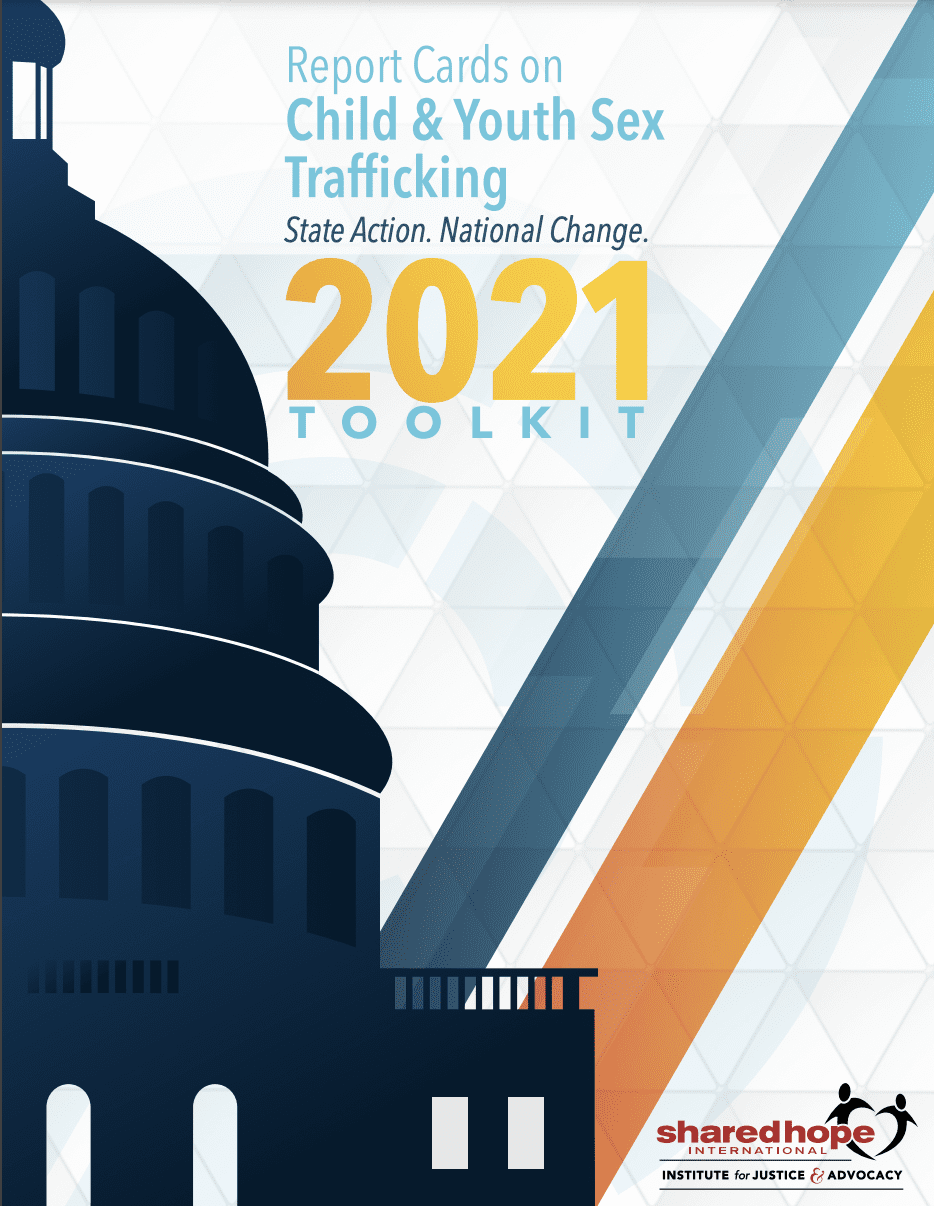
Report Cards on Child & Youth Sex Trafficking: State Action. National Change. 2021 Toolkit
A DECADE AGO, SHARED HOPE DEVELOPED THE NATION’S FIRST LEGAL FRAMEWORK that challenged states to enact laws that comprehensively address the crime of child sex trafficking. When we launched the Protected Innocence Challenge–and issued the inaugural State Report Cards–the majority of states received an “F” grade, reflecting the reality that many states’ laws failed to even recognize the crime of child sex trafficking. Over the past 10 years, we have been working to lay the foundation for transformational policy, practice, and cultural change by supporting state legislators and stakeholders to enact the minimum fabric of laws needed to address these heinous crimes. Ten years later, no state received an “F” grade, and a majority of the country received an “A” or “B.”
The Protected Innocence Challenge project was Shared Hope’s vision for mobilizing collective state action to ensure national change. Ten years of grassroots mobilization, advocacy, technical assistance, and consistent collaboration allowed this vision to become reality. All states now have a child sex trafficking law and collectively, the country has made exciting progress to provide imperative protections and access to specialized services for child survivors. However, 10 years has also led to new research and opportunities to listen to survivors, providing waves of information that require us, as a nation, to confront where we are and where we should be going. The Report Cards on Child & Youth Sex Trafficking Legislative Framework will build on the original Protected Innocence Challenge Framework, preserving the most fundamental components while including new policy priorities that reflect feedback and research from the field. Specifically, this advanced legislative framework focuses largely on victim protection laws, including policies pertaining to specialized service responses and access to justice. Comprehensive and accessible victim protections are, undoubtedly, the most crucial components of a strong response to child sex trafficking and, yet, as a nation we continue to fall behind.
Importantly, this framework also acknowledges the intersection of child sex trafficking with child labor trafficking and the unique challenges faced by youth age 18+. As such, several components of the advanced legislative framework are eligible for receiving extra credit when state law extends the protective policy to child victims of labor trafficking and/or youth age 18+. For a complete list of eligible components, please see the Extra Credit section of the framework below.
Read more here.
